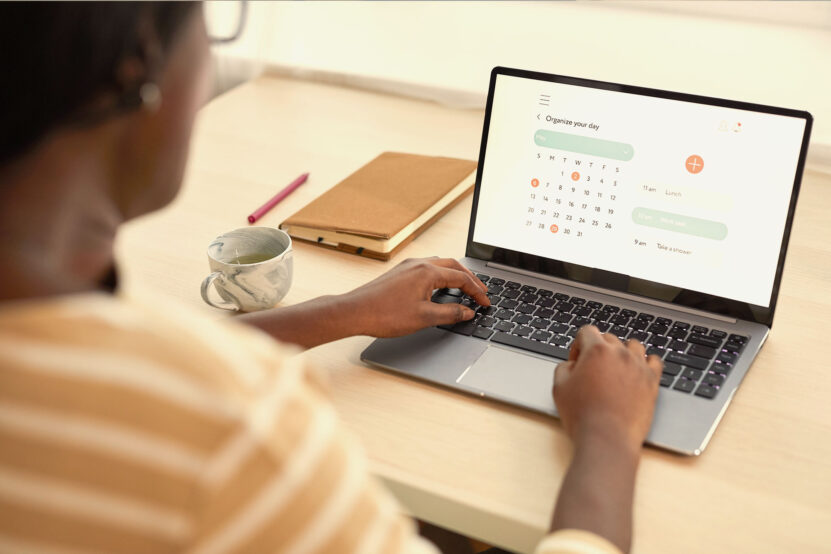With the digital revolution, our world has changed dramatically, and so has our work. Many of us work longer hours and juggle more responsibilities, both professional and personal. Consequently, work-life balance seems elusive for many. Yet, it is crucial for our overall well-being, health, productivity, and job satisfaction. This post aims to shed light on how you can better balance work and life in the fast-paced, always-on digital age, focusing on top 11 effective strategies.
Define Your Priorities

First and foremost, it’s essential to identify and prioritize what truly matters to you. Consider all facets of your life — your career aspirations, personal goals, relationships, and health. Once you have a clear picture of your priorities, you can better align your actions and decisions. Remember, everything cannot be a priority, and it’s okay. The Pareto Principle, or the 80-20 rule, suggests that 80% of results come from 20% of efforts. So, focus on the critical 20% in both work and personal life for a balanced lifestyle.
Set Boundaries
Creating distinct boundaries between your professional and personal life is another critical step. With the blurred lines between work and home, it’s easy to overwork. Therefore, set work hours and stick to them. Ensure you communicate these boundaries to your colleagues, family, and friends. Having set hours for work, rest, and play can create a structure that allows for a healthy balance.
Create a Dedicated Workspace
Whether you work remotely or in an office, having a separate, organized workspace is crucial. It fosters focus, minimizes distractions, and psychologically prepares you for work. Your workspace should be well-lit, ergonomic, and equipped with necessary resources. At the end of the workday, leave this space to signal your brain that it’s time to relax and unwind.
Limit Digital Distractions
In the digital age, our attention is constantly pulled by smartphone notifications, social media, and emails. These digital distractions can significantly hamper your productivity and work-life balance. Consider disabling unnecessary notifications, setting specific times to check emails, and using productivity apps to stay focused. Remember, technology is a tool — it’s up to you how you wield it.
Practice Time Management

Effective time management is key to achieving a work-life balance. It can help you work smarter, not harder. Techniques like the Pomodoro Technique, time blocking, and the Eisenhower Matrix can significantly enhance your productivity. Prioritize tasks, set realistic deadlines, and make sure to include breaks in your schedule to avoid burnout.
Cultivate Relaxing Pastimes
In the pursuit of work-life balance in the digital age, having relaxing pastimes can make a significant difference. These activities serve as a positive escape from work-related stress and add variety to your routine. For example, casual gambling, such as playing at online casinos like australianonlinecasinosites, can provide a thrilling yet relaxing experience, providing a sense of excitement and a break from the daily grind. However, it’s crucial to engage in such activities responsibly, setting limits to ensure it remains a leisurely pursuit.
Similarly, other activities such as reading a captivating book, practicing yoga, painting, or even playing a musical instrument can be equally relaxing. Digital platforms also provide a myriad of options, such as online book clubs, virtual yoga classes, and digital painting courses. The key lies in choosing a pastime that aligns with your interests and provides relaxation and enjoyment. Such activities not only offer an outlet for expressing creativity and unwinding but also contribute significantly to achieving a balanced and fulfilling life in the digital age.
Embrace Flexible Work Arrangements
Flexible work arrangements, such as remote work or adjustable hours, can greatly aid in harmonizing your work and personal life. These arrangements provide the opportunity for your work to mold and fit your life circumstances, rather than forcing your life to conform to rigid work structures. However, to ensure success, it’s crucial to communicate clearly and negotiate these arrangements with your employer, demonstrating how it will not compromise the quality of your work. Don’t be hesitant or afraid to discuss your needs. You are advocating for your well-being, and interestingly, research supports this — numerous studies show that flexible work arrangements can boost productivity and heighten employee satisfaction.
Prioritize Self-Care

In the whirlwind of our bustling lives, self-care often unjustly takes a backseat. However, it is the foundation upon which a healthy work-life balance is built. Deliberately incorporate regular exercise, adequate sleep, balanced nutrition, and relaxation techniques into your daily routine. Make these practices non-negotiable parts of your schedule. Additionally, ensure to make time for hobbies and interests that uplift your spirit and bring you joy. These activities serve as a buffer, providing necessary relief from work stress and replenishing your energy.
Learn to Say No
While it’s crucial to demonstrate commitment and diligence, it’s equally paramount to acknowledge and respect your limits. Be assertive in saying no to additional tasks when your plate is already full. This might seem challenging initially, especially if you have a tendency to please others, but with continuous practice, you’ll find it’s essential for maintaining your mental health and achieving work-life balance. Set clear expectations with your colleagues and superiors, and free yourself from any guilt about wanting to maintain a healthy personal life. It’s not just about surviving; it’s about thriving.
Unplug and Disconnect
In the era of smartphones and constant notifications, we’re often connected 24/7, chained to our digital devices. However, this constant connectivity can lead to digital fatigue and eventually, burnout. Cultivate the habit of regularly unplugging from technology, disconnecting from the incessant digital chatter. Whether it’s dedicating a tech-free weekend, implementing a no-device rule during meals, or setting aside a few hours each day, digital detoxes can provide much-needed mental respite, recharge your mind, and improve your focus.
Delegate and Collaborate
You’re not a lone warrior. You don’t have to carry all responsibilities on your shoulders. Whether at work or home, delegate tasks whenever it’s practical and possible. In your professional environment, collaborate with your team, leverage their individual strengths, and share responsibilities to achieve collective goals. Similarly, at home, involve family members in household chores and decisions. It’s about working together, not in isolation. Building a solid support system, both at work and home, can significantly reduce your stress, promote better work-life balance, and foster a sense of belonging and teamwork.
Schedule Quality Family and Personal Time

Allocating dedicated time for family, friends, and personal activities is not a luxury, but a necessity. Plan this time diligently, and guard it fiercely against work-related intrusions. Quality time away from work, spent with loved ones or in the pursuit of personal interests, can provide a refreshing break, rejuvenate your spirit, and substantially increase your overall happiness and satisfaction. Remember, these precious moments of leisure and connection are as important, if not more, as your work commitments. They’re the memories you’ll cherish.
Reflect and Adjust
Achieving a harmonious work-life balance isn’t a one-time task, but a continuous process, a journey rather than a destination. Make it a habit to periodically assess your current state of balance and identify areas of improvement. Remember, the concept of balance can differ for everyone, and it can change over time. Your needs and circumstances will evolve, especially in today’s dynamic and ever-changing digital age. Therefore, stay flexible, be kind to yourself, and adjust your strategies as needed. It’s about creating a fulfilling life, not chasing an elusive ideal.
Conclusion
In this digital age, maintaining a healthy work-life balance may seem challenging, but with the right strategies, it’s achievable. By defining your priorities, setting boundaries, managing time effectively, and caring for yourself, you can enjoy a fulfilling work and personal life. So, take these actionable steps, and remember, your well-being and happiness are worth prioritizing.
